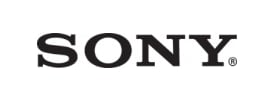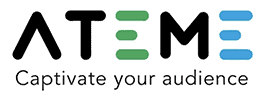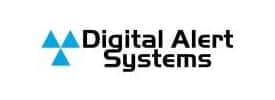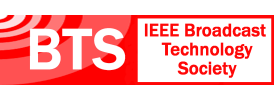- About
- Members
- Sponsors
- Subcommittees
- Technical Documents
- News
- Events
- Spotlight ATSC 3.0
- Contact Us
- Member Login
- Member Meetings
- Advanced Search
Search Site
Member Links
- About
- Members
- Sponsors
- Subcommittees
- Technical Documents
- News
- Events
- Spotlight ATSC 3.0
- Contact Us
- Member Login
- Member Meetings
- Advanced Search
ATSC Honors Merrill Weiss at Annual Meeting
Posted on June 1, 2012 in ATSC News
The ATSC honored Merrill Weiss is the 2012 recipient of its highest technical honor, the Bernard J. Lechner Outstanding Contributor Award. The presentation was made during the May 8 ATSC Annual Meeting at the Ronald Reagan International Trade Center.
The Lechner Award is bestowed once a year to an individual representative of the membership whose technical and leadership contributions to the ATSC have been invaluable and exemplary. The title of the award recognizes the first recipient, Bernard Lechner, for his outstanding services to the ATSC. The award winner is selected by the Board of Directors and presented at the ATSC Annual Meeting.
“Merrill is very adept at analyzing complex issues, putting them in perspective and recommending strategies to move the process forward,” said Mark Richer, ATSC President. “He has played a key role in many of our standards development efforts.”
IMPRESSIVE RESUME
Weiss is a well-known industry consultant with over 45 years’ experience in broadcasting. He is a Fellow of SMPTE, received its David Sarnoff Gold Medal and its Progress Medal, and has chaired numerous standards-writing committees. A graduate of the Wharton School of the University of Pennsylvania, he was the 2006 recipient of the NAB Television Engineering Achievement Award. Weiss is certified as a Professional Broadcast Engineer by SBE. He is a member of the IEEE Broadcast Technology Society and serves on its Administrative Committee. He holds four issued U.S. patents and two international patents on broadcast transmission technology.
“It’s a pleasure to welcome Merrill into the long list of TV industry experts who have earned recognition for their contributions to the standards-setting activities of ATSC. Anyone who has worked alongside him knows that he exemplifies the spirit of cooperation that makes collaborative progress possible,” said Samsung Vice President John Godfrey, Chairman of the ATSC Board of Directors.
KEY ATSC CONTRIBUTOR
Weiss was a leading contributor in the development of A/110, “Synchronization Standard for Distributed Transmission,” and its successor document “A/110:2011,” the ATSC Standard for Transmitter Synchronization. In addition, he made significant technical contributions to the development of the A/ 153 ATSC Mobile DTV Standard, and also has been a longtime contributor to work on video and audio coding in TG1/ S6, transport issues in TG1/S8, transmission technologies in TG1/S9, and receivers in TG1/S10.
Weiss joins an august group of honorees. Past recipients of the ATSC Lechner Award are:
2000 – Bernard Lechner, Consultant
2001 – Rich Chernock, Triveni Digital
2002 – Regis Crinon, Microsoft
2003 – Glenn Adams, Extensible Formatting Systems, Inc
2004 – Graham Jones, National Association of Broadcasters
2005 – John Henderson, Hitachi
2006 – Art Allison, National Association of Broadcasters
2007 – Mark Eyer, Sony Electronics
2008 – Michael Dolan, TBT
2009 – Wayne Bretl, LG Electronics/Zenith
2010 – Pat Waddell, Harmonic
2011 – Jim Starzynski, NBC Universal
Posted in ATSC News
News Categories
News Archives
Subscribe
Subscribe to The Standard, our monthly newsletter. Learn More
Join ATSC
ATSC is a membership organization with both voting and observer categories. Voting members include corporations, nonprofit organizations, and government entities, and they participate actively in the work of ATSC. Observers are individuals or entities not eligible to be a voting member.
Subscribe to our Newsletter
Subscribe to The Standard, our monthly newsletter, to stay up-to-date with ATSC news and events around the world.
Site Links
Contact Us
Advanced Television Systems Committee, Inc.
1300 I Street NW, Suite 400E
Washington, DC 20005
Do you have questions about ATSC?
About ATSC
The Advanced Television Systems Committee, Inc., is an international, non-profit organization developing voluntary standards and recommended practices for digital terrestrial broadcasting. ATSC member organizations represent the broadcast, broadcast equipment, motion picture, consumer electronics, computer, cable, satellite, and semiconductor industries. ATSC also develops digital terrestrial broadcasting implementation strategies and supports educational activities on ATSC standards.
© 2025 ATSC





































